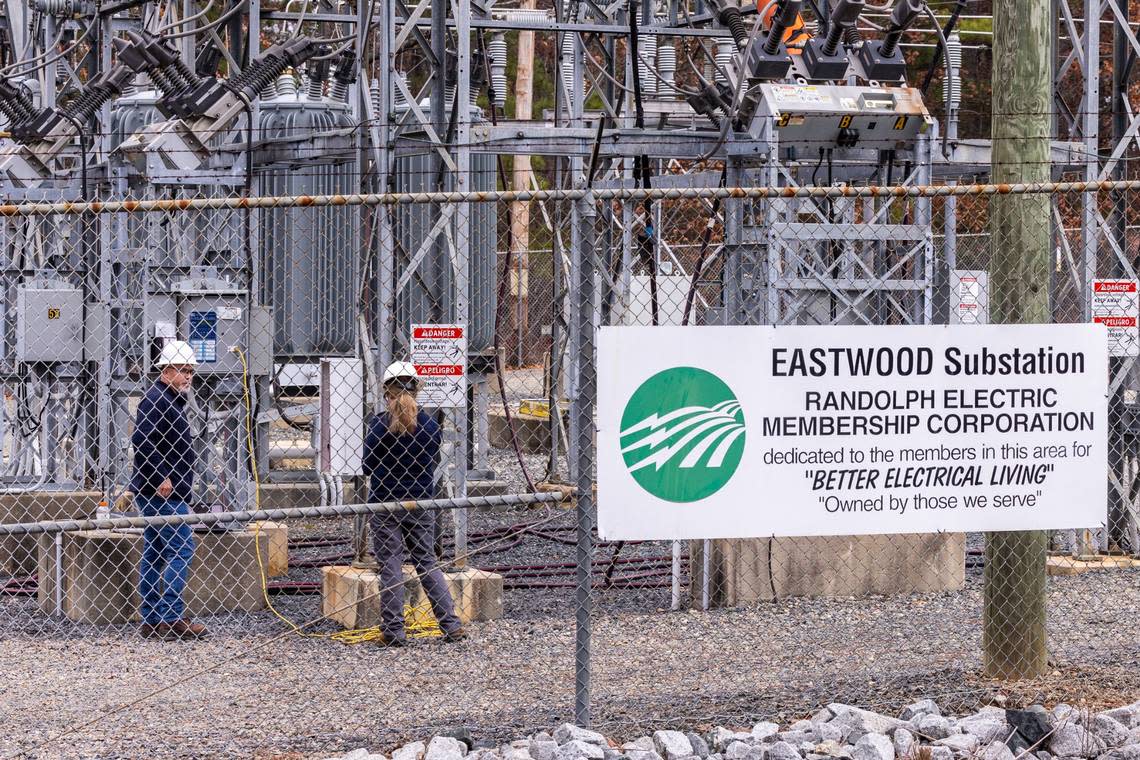NC gets tougher on power grid attacks after Moore County winter sabotage and blackout
Gov. Roy Cooper signed into law a bill that increases punishments for intentionally damaging utility equipment, six months after the Moore County’s power grid attacks.
More than 45,000 homes and businesses mostly served by Duke Energy were thrust into darkness for nearly four days in December after gunfire disabled two electrical substations.
“We must protect critical infrastructure that keeps electric power and clean water available in our communities, and this bill sends a message to criminals that these irresponsible acts will not be tolerated,” Cooper wrote Monday.
Nobody has yet been charged or arrested for the Moore County sabotage, one of multiple infrastructure attacks under investigation in North Carolina.
Tougher penalties for doing harm
The “Protect Critical Infrastructure” bill, which passed the state House and Senate unanimously, increases penalties for acts damaging energy-grid facilities and for trespassing on those facilities.
It also increases the penalty “for willful injury to wires and other fixtures of telephone, broadband, or cable telecommunications,” according to a bill summary prepared by legislative staff.
Under the updated charges, someone who damages utility infrastructure could serve over six years in prison and face up to $250,000 in fines. It would also allow any person injured “by reason of damage to an energy facility” to sue whoever caused the damage, according to the summary.
If an attack causes a death, a person could be charged with a B2 felony, which carries significantly more years in prison, the new law states.
“This was a willful, intentional and malicious act, not a random act,” Sen. Tom McInnis, who represents Moore County, said of the December attack during a press conference earlier this year.
McInnis and Sens. Danny Britt and Paul Newton, all Republicans, introduced the legislation, which takes effect Dec. 1 and applies to offenses committed on or after that date.
US lawmakers tune into NC damage
U.S. lawmakers are investigating the Moore County incident.
On Friday, U.S. Rep. Richard Hudson, who lives in Southern Pines and represents North Carolina’s 9th district, was in Pinehurst with eight other members of the House Energy and Commerce Committee. They held a field hearing on threats to electrical infrastructure, as previously reported by The Pilot.
Subcommittee members toured a station in West End on Friday before the hearing.
“I wanted my colleagues to see the sophistication of that attack and understand the larger implications of that as it plays into the vulnerabilities of our utility grid,” Hudson said, The Pilot reported.
“I think we can learn from what happened here, what could happen somewhere else if a larger-scale attack of this sophistication ever were to happen.”
Under federal law, penalties for damaging energy facilities are much harsher, with a 20-year maximum sentence if the damage exceeds $100,000, or if someone causes or tries to cause “a significant interruption or impairment of a function” of the facility.
Not a one-off
In addition to the Moore County attack, someone in November intentionally damaged transformers at a substation near Maysville in Jones County, causing them to leak coolant.
About 12,000 homes lost power for a couple of hours in that incident, which remains under investigation, The News & Observer reported.
Additionally, an EnergyUnited substation in the Randolph County portion of Thomasville was hit by multiple gunshots on Jan. 17.
Following these incidents, the FBI got involved, offering $25,000 rewards for information leading to arrests and convictions for the Moore, Randolph and Jones County cases.



